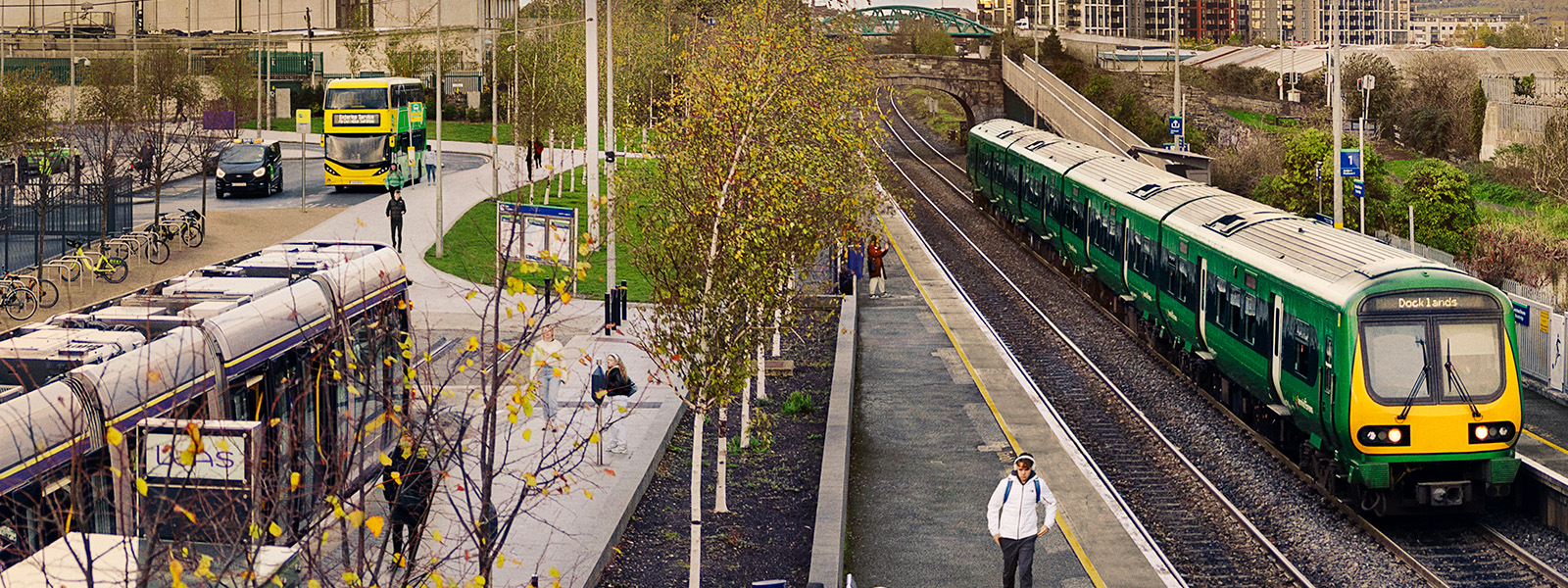Welcome to TFI Smarter Travel for Campuses
TFI Smarter Travel is a behaviour change programme working with Third Level Campuses to implement voluntary Campus Travel Plans that promote and encourage sustainable and active commuting.
A growing number of Irish Third Level Campuses are engaging in Smarter Travel, working with students and employees to facilitate more sustainable travel choices – resulting in better access, enhanced student and employee wellbeing, reduced costs, reduced carbon emissions, and more effective parking management.
You can find out more information on our Campus Partners and some of their success stories by visiting TFI Smarter Travel Campus Partners.
DCU’s membership of the NTA Smarter Travel Campus programme has brought many advantages over our years of membership. The annual staff and student survey supported under this programme provides extremely valuable information regarding the modal choice and commuting habits, improving our support for commuters and enhancing our future planning. We are very active participants in the NTA challenges and awards with growing levels of engagement every year – we have even won a few!
Samantha Fahy, Sustainability Manager, Dublin City University.
What is a Campus Travel Plan?
A Campus Travel Plan consists of a package of measures which, if implemented, support more sustainable and cost-effective travel habits among students, employees, and visitors.
Travel plans comprise actions to promote walking, cycling, public transport, carpooling, car sharing, the use of technology instead of travel and flexible working practices. Campus Travel Plans usually focus on commuting but can also include business travel or suppliers and visitors coming onto campus.
Why are Campus Travel Plans relevant for my Campus?
Student and employee travel can often be an invisible cost for an organisation, in terms of both time and money.
There are significant benefits for the organisation effectively promoting more sustainable travel to campus, including:
- Increased accessibility to campus for students, employees, visitors, and suppliers;
- Reduced costs associated with providing car parking for students, employees or visitors;
- Reduced pressure on parking spaces so they are available to those with most need;
- Reduced mileage costs and downtime spent travelling;
- Enhanced student and employee wellbeing and teambuilding opportunities;
- Reduced carbon emissions associated with travel;
- Land formerly under parking released for more productive purposes;
- Compliance with planning permission conditions;
- Reduced absenteeism and
- Reduced employer’s PRSI payments (through Cycle to Work/ Taxsaver ticket for public transport schemes).
Campus Travel Plans make business sense, with some of the biggest Third Levels and other employers in Ireland, the UK and internationally undertaking them as a core business management strategy. These organisations are market leaders, and regularly receive accreditation and awards recognising their achievements in this area, including for example, Green Flags, ISO14001, Ireland’s Best Workplaces, and Chambers Ireland Awards.
Internationally, travel plans have been shown to reduce single-occupant car use by with the reduction depending on the extent of the travel plan and site-specific issues. This reduction in car use can represent significant cost savings to an organisation, in terms of both money and employee time.
While campus travel plans can include some ‘hard’ measures (e.g., infrastructure such as cycle parking, cycle lanes, showers, or lockers), they can focus primarily focused on ‘softer’ measures (e.g., promotion, marketing, events). Many of the actions in Campus Travel Plans are low-cost, but highly visible, and contribute to a culture of sustainability within the organisation.
